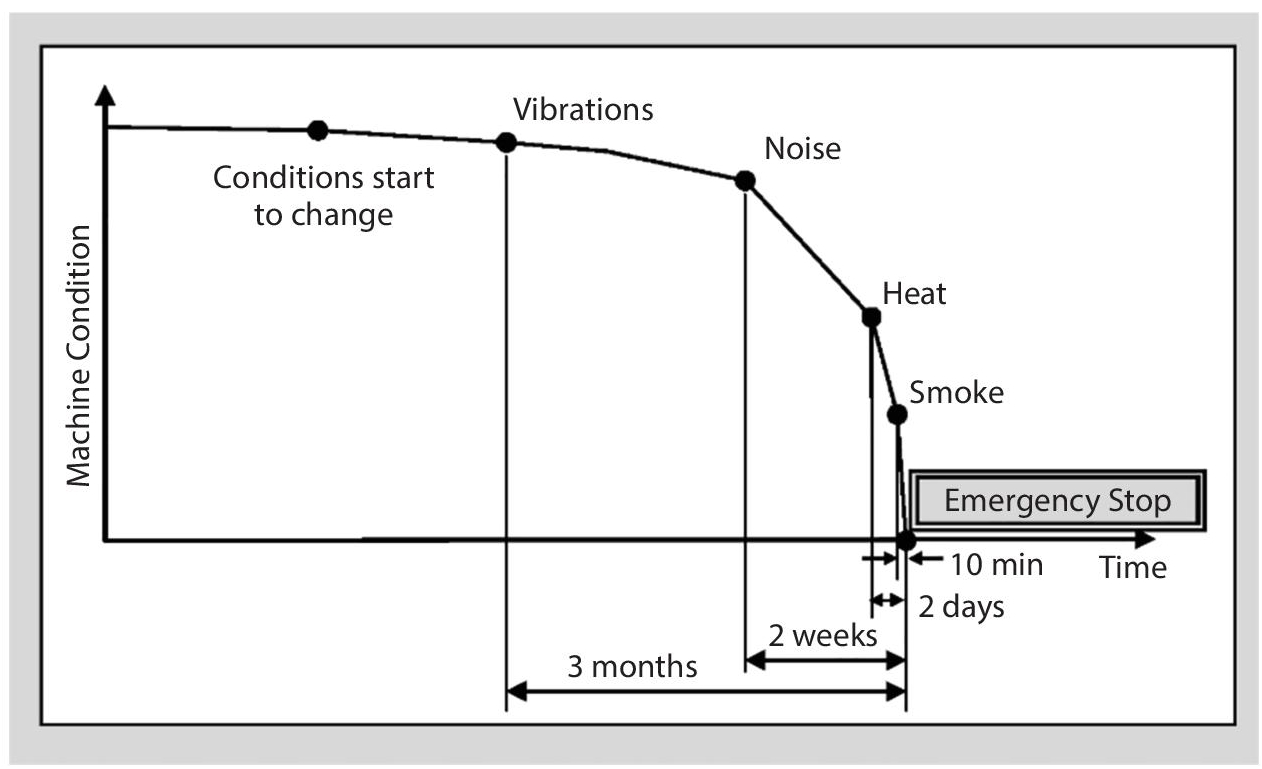1An Introduction to Machinery Monitoring
By Robert X. Perez
The aim of employing predictive maintenance technologies in process facilities is to assess the condition of equipment by performing periodic inspections such as vibration analysis, temperature monitoring, oil analysis, ultrasonic analysis, etc. or by using permanently installed equipment, such as vibration or temperature sensors. The primary tenant of the predictive maintenance philosophy is that it is more cost-effective to perform maintenance when degradation or distress is detected than to risk running equipment until it loses performance capability and adversely affects the process (Figure 1.1). Operating personnel hope to identify and address machinery issues in the primary state before costly secondary damage is experienced.

Figure 1.1 As a machine begins to fail, it begins showing signs of distress. First, vibration levels increase and then noise is detected. In the final stages of failure, heat and smoke are experienced before a catastrophic failure occurs. It makes economic sense to invest in condition monitoring technology that can detect early signs of failure before secondary damage can occur.
There are two types of data collected by condition monitoring systems: a) Dynamic data which is composed of electrical signals that rapidly change versus time, as seen in Figure 1.2. Dynamic data requires some ...
Get Condition Monitoring, Troubleshooting and Reliability in Rotating Machinery now with the O’Reilly learning platform.
O’Reilly members experience books, live events, courses curated by job role, and more from O’Reilly and nearly 200 top publishers.

